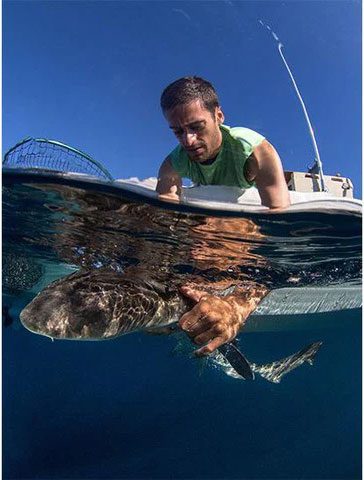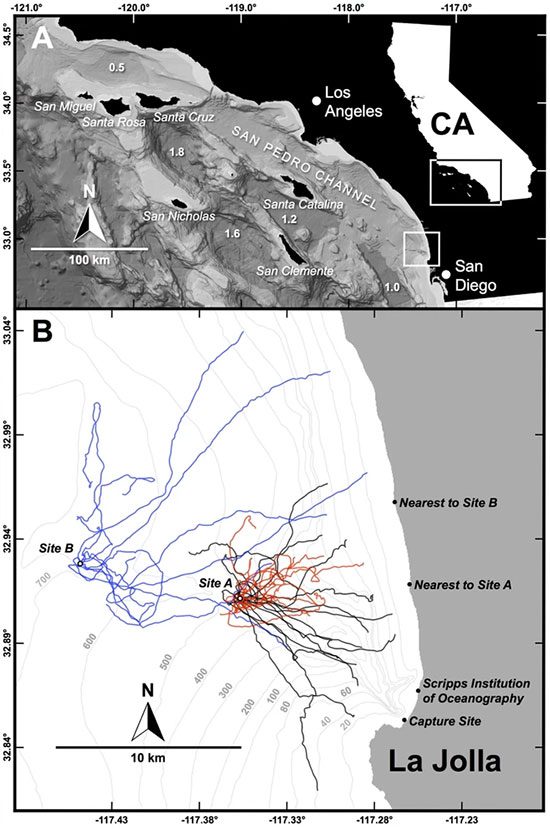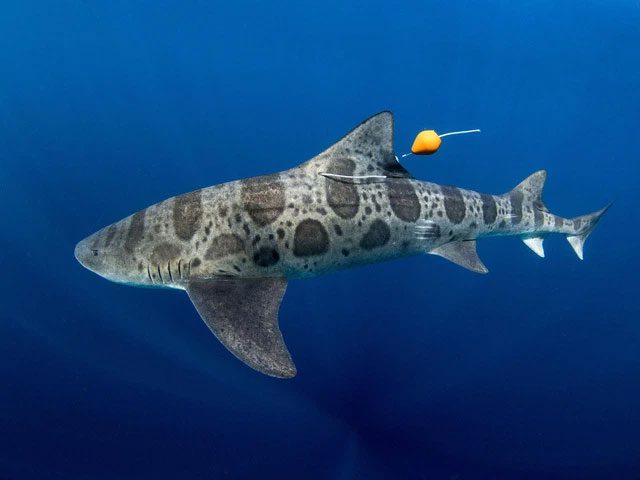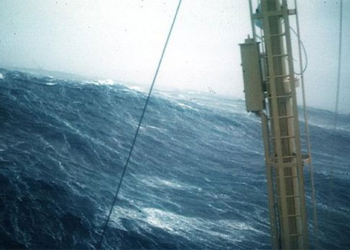To answer this question in 2016, a research team at the Scripps Institution of Oceanography in the United States conducted an experiment: They “kidnapped” sharks living near the California coast, blindfolded them, and then took them 9 kilometers offshore.
The kidnapping was carried out in the literal sense. The sharks were caught and pulled onto a boat, flipped upside down to induce a state of immobility due to tonic immobility. The scientists covered the sharks with a white tarp to prevent them from determining direction based on the angle of sunlight.
A total of 26 sharks were divided into two groups. The first group consisted of 11 sharks that had cotton balls soaked in mineral oil inserted into their nostrils before being released back into the water. The purpose was to see if they could find their way home when their sense of smell was disabled.
The second group included 15 other sharks, known as the control group. These sharks also had their nostrils blocked, but without the mineral oil, meaning their sense of smell remained functional.

Dr. Andrew Nosal releasing a shark back into the ocean after kidnapping it.
After being released, the scientists used tracking devices to monitor the movements of both groups of sharks. The results showed that the 15 normal sharks could immediately find their way back to shore. They swam faster than the average speed and returned almost in a straight line.
In contrast, the 11 sharks with cotton balls soaked in mineral oil struggled to orient themselves. They swam slowly and erratically at only half the speed, with some even getting lost and swimming in circles.
Dr. Andrew Nosal, the lead author of the study, stated: “This experiment demonstrates that smell is a crucial factor for sharks in navigation.” Previous studies have also shown that sharks have a highly developed olfactory region in their brains.
The hypothesis proposed by Dr. Nosal is that sharks may rely on the gradient of seawater to find their way home. A gradient is a gradual decrease in the concentration of specific chemical molecules over distance. Simply put, sharks can smell where their home is because there are characteristic chemical molecules in their home waters.
The further they swim in the right direction, the higher the concentration of the gradient becomes, helping the sharks know exactly where they need to swim. This gradient-based orientation mechanism has previously been discovered in bird species.
“With similarities in the three-dimensional flow mechanisms of the atmosphere and ocean, further studies comparing swimming and flying animals may lead to a unified model explaining their extraordinary navigation abilities“, the study authors noted.

The black and blue paths are those of the sharks with normal sense of smell. The red path is that of the sharks with nostrils blocked with mineral oil.

A shark fitted with a tracking device in the study.
However, the story of sharks’ navigation abilities does not stop at their sense of smell. “Smell is not the only sense that sharks use to find their way,” Dr. Nosal said.
This is because, in the group of sharks with cotton balls soaked in mineral oil, he observed that although they could not swim directly home, they still tended to swim toward the shore.
Previously, scientists had also recorded instances of sharks “hitchhiking” across the ocean over unimaginable distances. They certainly could not use their sense of smell for navigation in those cases.
For example, in 2005, they observed a massive great white shark that swam from South Africa all the way to Australia. Surprisingly, it was able to swim back home in a straight line.
A similar phenomenon has been found in shark populations swimming from Hawaii to California and from the Alaskan coast to the subtropical Pacific region. Bryan Keller, an ecologist at the University of Florida, suspects that this ability of sharks stems from their capacity to sense the Earth’s magnetic field.

Bryan Keller in his experimental cage with the sharks.
Since the 1970s, scientists have suspected that a group of fish including sharks, rays, and sawfish could navigate using the magnetic field. However, no one has been able to prove this for sharks.
Therefore, Keller decided to conduct an experiment. He created a large cage wrapped in copper wire. Then, Keller adjusted the electric current passing through each coil to simulate the Earth’s magnetic field.
Finally, about 20 young sharks were selected, placed in a tank, and introduced into the cage. Now, Keller exposed them to three different magnetic environments.
Case 1, when the copper coils accurately simulated the Earth’s magnetic field at the location where the sharks were caught, he observed that the sharks swam randomly around the tank.
Case 2, when the magnetic field was adjusted to resemble a location 600 km south of the sharks’ home, the sharks swam toward the top of the tank, or more specifically, northward.
Case 3 was the opposite, with the magnetic field simulating a location 600 km north. However, this time, Keller did not observe the sharks tending to swim down toward the bottom of the tank to find their way south.
Explaining this experiment, the research team stated that cases 1 and 2 correctly demonstrated that sharks have the ability to use the magnetic field to find their way home.
In case 3, this hypothesis still holds true because the sharks they caught are a population that typically migrates south. They do not usually swim north, so they did not know what to do when placed in a virtual location 600 km north of their home.
This further proves that the ability to navigate using the magnetic field is a skill that sharks learn, not an innate ability. “The sharks would be confused about what to do in the north because they have never swum there before“, Keller said.
His research and that of his colleagues has just been published in the journal Current Biology. This is significant evidence showing the remarkable navigational abilities of sharks. Among terrestrial animals, dogs also possess the ability to navigate using both smell and magnetic fields.
So, if your pet never gets lost on the way home, sharks are the same. They are very good at finding their way.





















































